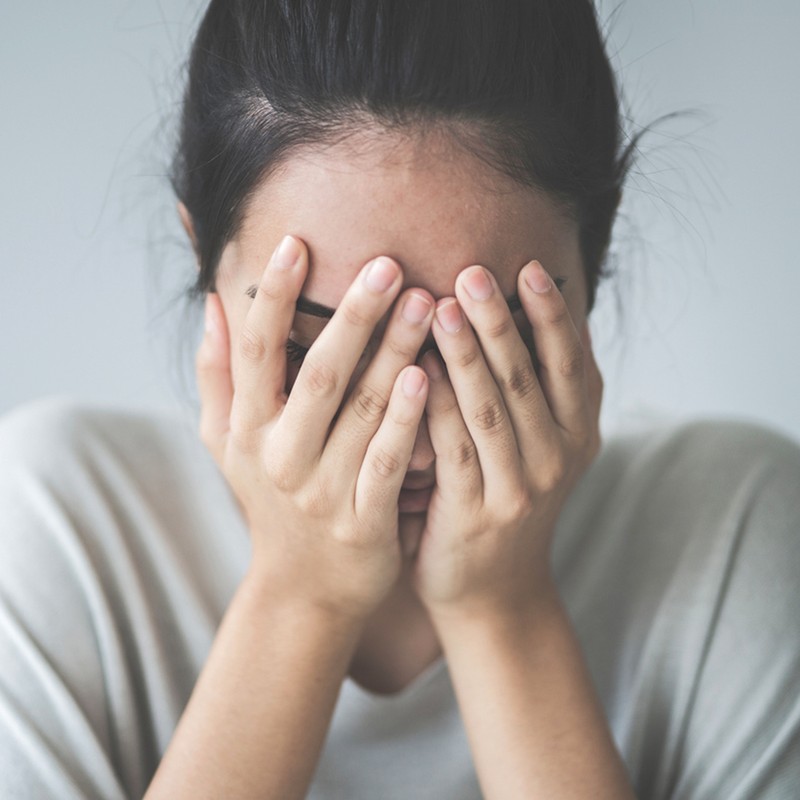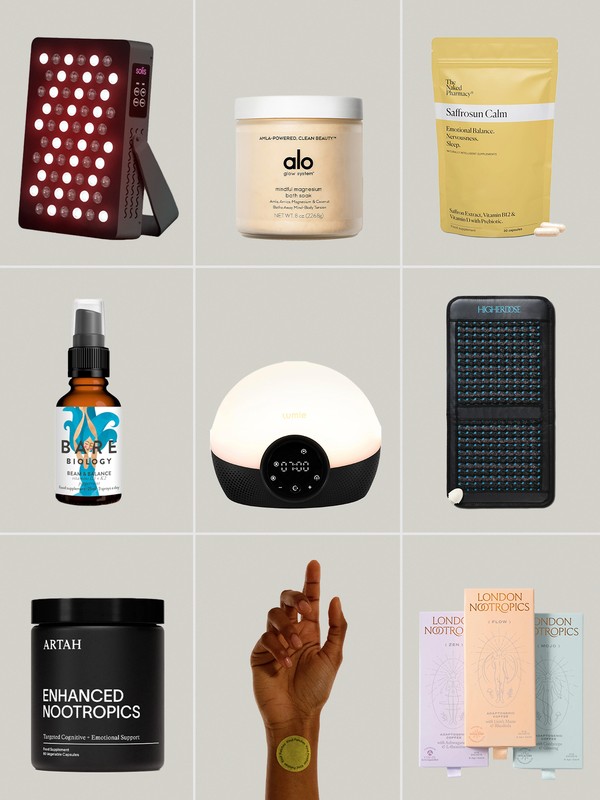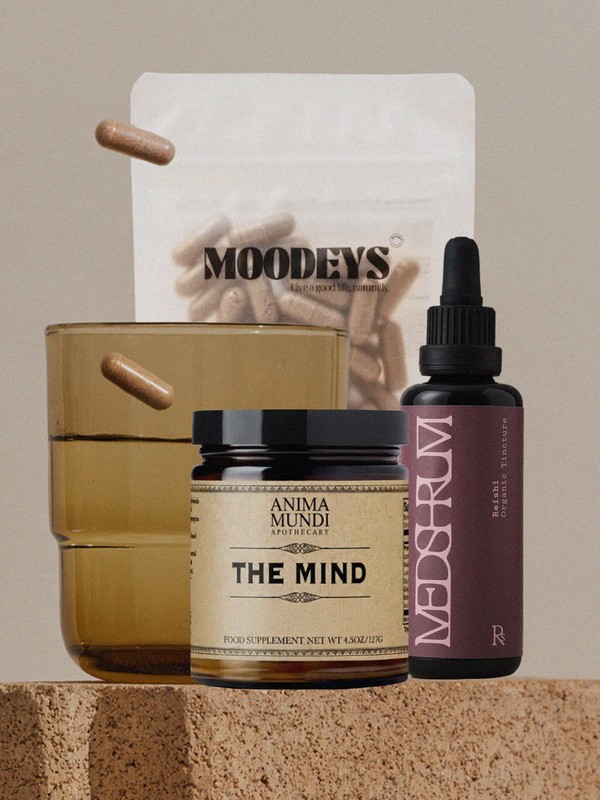Everything You Need To Know About Panic Attacks
What is a panic attack?
According to mental health charity Mind, panic attacks are an exaggeration of your body’s normal response to danger, stress or excitement – essentially, they are a fear response. At its most basic, panic attacks are “an intense feeling of fear or dread, accompanied by uncomfortable physical symptoms,” says Emma Hammett, CEO of First Aid for Life.
What are the triggers?
The triggers for panic attacks can be vast and differ from person to person. “Exams can increase stress, as well as certain times of life, like going through the menopause,” explains Emma. “But there doesn’t always need to be an obvious reason – sometimes they just happen.” However, she adds that women are more likely to experience them than men: “Panic attacks can have many medical and emotional triggers – including severe stress – with women twice as likely as men to be diagnosed with panic disorder, which is classified as repeated and unexpected panic attacks,” says Emma.
What do panic attacks feel like?
During a panic attack, Mind says the physical symptoms can be quick to build. These symptoms can include the following:
-
A pounding or racing heartbeat
-
Feeling faint, dizzy or light-headed
-
Feeling very hot or very cold
-
Sweating, trembling or shaking
-
Nausea (feeling sick)
-
Pain in your chest or abdomen
-
Struggling to breathe or feeling like you're choking
-
Feeling like your legs are shaky or are turning to jelly
-
Feeling disconnected from your mind, body or surroundings, also known as dissociation
There are also mental symptoms that begin to build, too. These include feelings that you’re losing control, going to faint, that you’re having a heart attack or going to die. Some begin to hyperventilate which causes physical symptom, such as chest pain, which can make the mental concerns, such as fear of having a heart attack, seem as though they are coming true.
When do panic attacks usually happen?
Panic attacks can happen any time, day or night. And it varies for everyone – some might have one and never have another, while others might have them regularly, or several in a short space of time. There might be a place or situation that affects you, like a stressful appointment. They can last anywhere between five and 20 minutes, and can come on very quickly. Anything longer may be because of a second panic attack, or could be symptoms of anxiety.
Are they normal?
Despite the stigma attached to panic attacks and the fact they feel particularly unpleasant, “panic attacks are common and won’t cause any lasting damage,” says Emma. Poppy Jamie, founder of mental health app Happy Not Perfect that aims to help you look after your mental wellbeing, says there is a real lack of education surrounding panic attacks which affect all of us: “We’re hard-wired to have these mechanisms – as homo sapiens, our fear response alerted us and steered us away from danger. Panic attacks are normal, as is talking about them. The stigma comes from a lack of understanding.”
How can you stop them?
You might not be able to stop them straight away, but there are effective ways to manage them. “Use calming breathing techniques,” Emma advises. “The rapid breathing that occurs during a panic attack reduces the amount of carbon dioxide in the blood, which in turn contributes to feelings of dizziness, faintness and chest pain. Practising breathing exercises and relaxation techniques can help you manage a panic attack and reduce the unpleasant symptoms. Sipping water can also be calming, as is offering reassurance that the panic attack will pass.”
If you are with someone who is suffering a panic attack, she suggests reassuring them with positive, supportive words and phrases like “you’ll be ok” and “this will pass”. Try and remove them from the situation if that’s a trigger, encourage calm breathing and if all else fails, seek medical help. But Emma notes that, while many people think that giving someone who is having difficulty breathing a paper bag seems like a good idea (and we’ve seen it in countless films), mentally it can cause problems: “The casualty might become dependent on a paper bag, and can panic more if they don’t have one to hand.”
What to do to take control?
No matter how debilitating a panic attack can feel, it’s important to remember they don’t control you – instead, learn to control them. “Our mental health is a constant journey,” says Poppy. “You can’t just go for one run and expect to be fit and healthy your whole life. It’s the same with mental health – your brain needs the same attention and nurturing to ensure its operating at its best.” There’s a range of options to help you take hold of your panic attacks – first and foremost, you can visit your doctor for more information. Mind also suggests that in the wake of a panic attack to think about telling someone you trust: “If you feel able to, it could help to let someone know you've had a panic attack. It could be particularly helpful to mention how they might notice if you're having another one, and how you'd like them to help you.”
There are also apps you can download to help you manage your feelings effectively. Poppy’s app, Happy Not Perfect, was designed to help you keep your mental health in check. She’s spent the last four years finding the best experts to help her put the app together to make sure users have help at their fingertips, “because in moments of distress, the last thing you’re going to do is look for that book you read five years ago for the information.” Instead, Happy Not Perfect has created what she calls a ‘toolbox’ to help people deal with their emotions.
The NHS also suggest practicing regular breathing exercises daily will help to prevent and relieve panic attacks, whilst regular exercise will help to manage your stress levels. Caffeine, alcohol and smoking make panic attacks worse, so avoid them if you can. And they also suggest joining a panic support group like No Panic: “They have useful advice about how you can effectively manage your attacks. Knowing that other people are experiencing the same feelings can be reassuring.”
Visit Mind.org.uk or NHS.uk for more information on panic attacks and mental health.
DISCLAIMER: We endeavour to always credit the correct original source of every image we use. If you think a credit may be incorrect, please contact us at info@sheerluxe.com.






